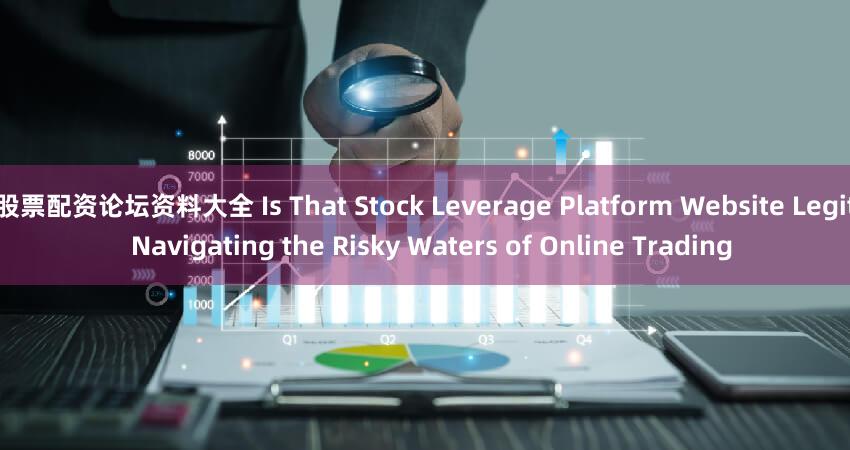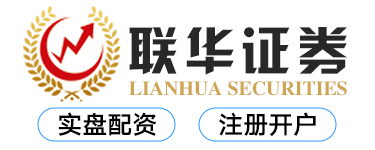
Is That Stock Leverage Platform Website Legit? Navigating the Risky Waters of Online Trading
Meta Description: Uncover the truth behind stock leverage platform websites. Learn how to identify legitimate platforms, avoid scams, and protect your investment with our expert guide. Discover crucial tips and insights for safe and informed trading.
Intriguing Introduction: So, you're eyeing the allure of leverage trading, hoping to amplify your returns in the stock market. The internet’s a goldmine – and a minefield – of information, with countless websites promising easy riches through stock financing. But hold your horses! Before you hand over your hard-earned cash to any flashy website promising overnight millions, you NEED to do your homework. This isn't some get-rich-quick scheme; it's a high-stakes game, and losing your shirt is far easier than winning big. This article will cut through the noise, giving you the tools to assess the legitimacy of any stock leverage platform website and help you navigate this complex world with confidence. Think of me as your seasoned guide, ready to steer you clear of the treacherous reefs of online investment scams. Let's dive in!
Stock Financing Platforms: A Deep Dive
The world of online stock financing platforms is booming. It's exciting, offering the possibility of significant returns – but it's also fraught with danger. Countless platforms advertise their services, promising high leverage ratios and seemingly effortless profits. However, not all platforms are created equal. Some are legitimate, regulated entities offering a valuable service to sophisticated investors, while others are outright scams designed to part you from your money. Identifying the difference is crucial, and this requires a discerning eye and a healthy dose of skepticism.
Here's what you should be looking for:
-
Regulation: A legitimate platform will be registered and regulated by a reputable financial authority. This varies by country, but look for licenses from bodies like the SEC (Securities and Exchange Commission) in the US, the FCA (Financial Conduct Authority) in the UK, or equivalent regulators in your jurisdiction. Don't just take their word for it; verify the license independently on the regulator's website. A simple Google search often reveals warning signs if a platform is operating illegally.
-
Transparency: Transparency is key. A reputable platform will be open about its fees, terms and conditions, and risk disclosures. Read the fine print carefully – if something seems too good to be true, it probably is. Avoid platforms that are vague about their operations or that try to hide information. Legitimate companies are proud of their credentials and proactive about communicating them clearly.
-
Security: Your personal and financial information needs to be protected rigorously. Look for platforms that use robust encryption (HTTPS) and have a solid security infrastructure in place. Check their privacy policy to see how they handle your data. Beware of platforms that ask for unnecessary or excessive personal information.
-
Customer Support: A reliable platform will offer readily available and helpful customer support. Test their responsiveness – contact them with a simple question and see how quickly and thoroughly they address your inquiry. Poor or nonexistent customer service can be a major red flag.
-
Reputation: Before investing, research the platform's reputation. Look for independent reviews and testimonials online. Be wary of overwhelmingly positive reviews, as these can be faked. Sites like Trustpilot or similar review platforms can offer insights, but always cross-reference information from several sources.
What to Avoid:
-
Unlicensed platforms: A glaring red flag is the absence of regulatory oversight. Trading on an unlicensed platform exposes you to significant risk of fraud and loss of funds.
-
High-pressure sales tactics: Legitimate platforms rarely employ aggressive or high-pressure sales techniques. If a platform is pushing you to invest immediately or making unrealistic promises, walk away.
-
Guaranteed returns: Any platform promising guaranteed returns should be viewed with extreme suspicion. Investing in the stock market always carries risk, and no one can guarantee profits.
实盘配资 -
Unclear fees: Hidden fees or complicated fee structures are warning signs. Make sure you understand exactly what fees you'll be paying before you invest.
-
Lack of contact information: Reliable platforms will provide clear and easily accessible contact information, including phone numbers, email addresses, and physical addresses.
Leverage: The Double-Edged Sword
Leverage trading, while offering the potential for amplified returns, significantly increases risk. A small market movement against your position can lead to substantial losses. It’s akin to driving a high-powered sports car – exhilarating but potentially disastrous if you don't know how to handle it. Before considering leverage, ensure you have a deep understanding of the risks and possess a robust risk management strategy. Never invest more than you can comfortably afford to lose.
| Leverage Ratio | Potential Profit | Potential Loss | Risk Level | |---|---|---|---| | 1:1 | X | X | Low | | 1:2 | 2X | 2X | Medium | | 1:5 | 5X | 5X | High | | 1:10 | 10X | 10X | Extremely High |
Remember, leverage is a tool; it's not a magic wand. Use it wisely and responsibly.
Due Diligence: Your Best Defense
Conducting thorough due diligence is paramount. Don't rush into any investment without first rigorously investigating the platform and understanding the risks involved. Spend time researching, comparing, and verifying information. Consider seeking advice from a qualified financial advisor before making any investment decisions.
Frequently Asked Questions (FAQ)
Q1: How can I verify the legitimacy of a stock leverage platform's license?
A1: Check the regulatory body's official website for your region. Look for a search function to input the platform's name and verify its registration status. Don't rely solely on the platform's claims; always independently confirm their licensing information.
Q2: What are the typical fees associated with stock financing platforms?
A2: Fees vary greatly but can include commissions on trades, financing charges (interest on borrowed funds), platform fees, and potentially other ancillary charges. Review the fee schedule meticulously before committing to a platform.
Q3: What is the best way to protect myself from scams?
A3: Be skeptical, do thorough research, avoid high-pressure sales tactics, verify licenses independently, and never invest more than you can afford to lose. If something seems too good to be true, it probably is.
Q4: If I suspect a scam, what steps should I take?
A4: Immediately cease all interactions with the suspected platform. Report the scam to your local authorities and the relevant financial regulatory bodies. Document all communications and transactions you've had with the platform.
Q5: Are there any free resources to help me understand leverage trading?
A5: Many reputable financial websites and educational institutions offer free resources on leverage trading. Look for materials that explain the concepts clearly and comprehensively. Remember, it often takes time to understand the nuances of this complex trading strategy.
Q6: Can I use a stock leverage platform if I’m a beginner investor?
A6: Leverage trading is generally not recommended for beginner investors. It carries a high level of risk and requires a strong understanding of market dynamics and risk management. Beginners should focus on learning the basics of investing before considering leverage.
Conclusion: Proceed with Caution, but with Confidence
The world of online stock leverage platforms presents both incredible opportunities and substantial risks. By following the guidelines outlined in this article and conducting thorough due diligence, you can significantly increase your chances of finding legitimate platforms and minimizing your exposure to fraud. Remember, informed decisions are the cornerstone of successful investing. Don't let the lure of quick riches blind you to the potential pitfalls. Arm yourself with knowledge, cultivate a healthy dose of skepticism, and approach this exciting but challenging world with informed caution. Happy and safe trading!
文章为作者独立观点,不代表财盛证券观点






